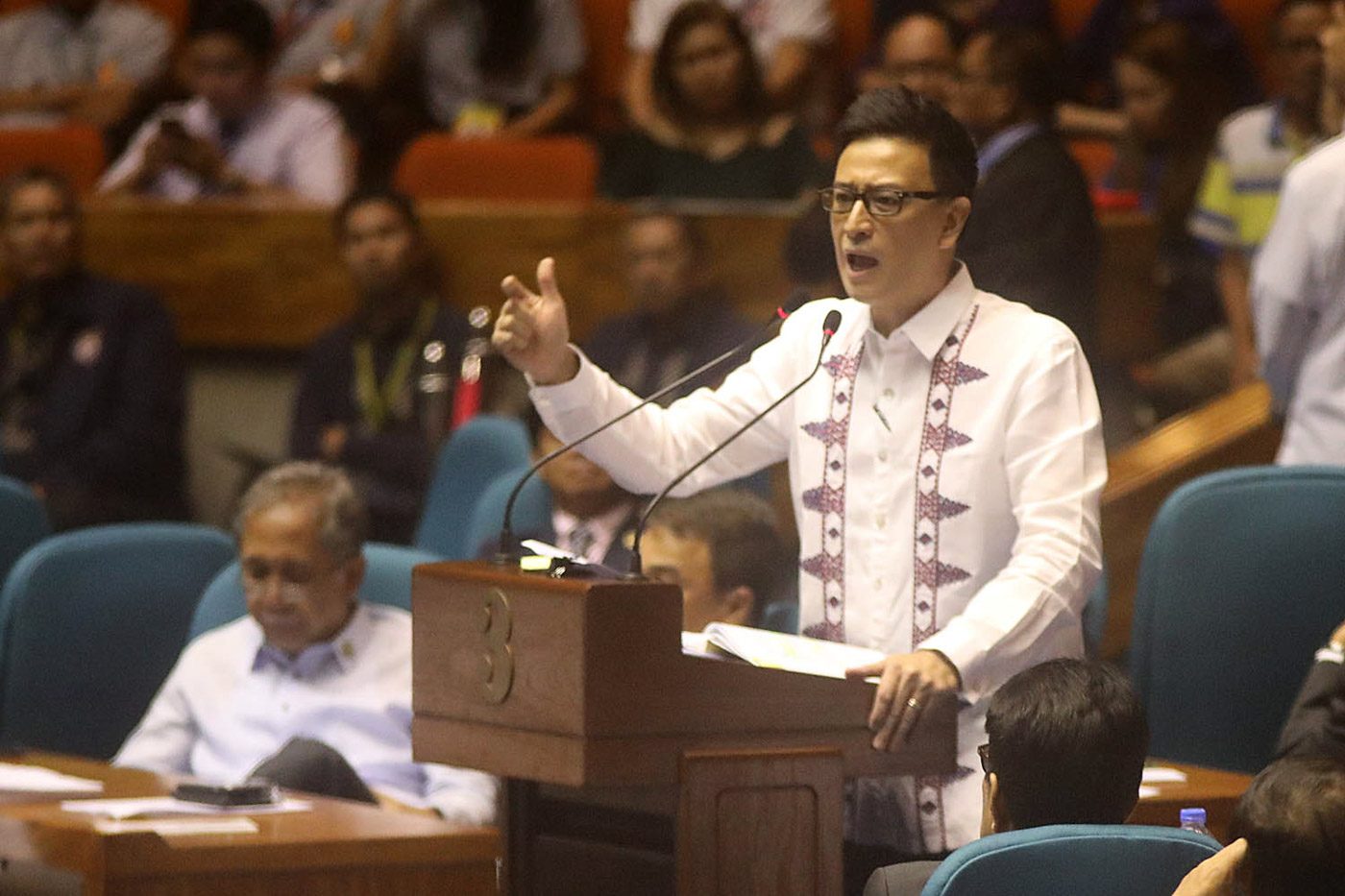SUMMARY
This is AI generated summarization, which may have errors. For context, always refer to the full article.

MANILA, Philippines – Marikina 2nd District Representative Miro Quimbo contradicted the claim of House Majority Leader Rolando Andaya that coups in 2000 and 2008 set the precedent for the controversial minority leadership of Quezon 3rd District Representative Danilo Suarez.
On Thursday, August 9, Quimbo reacted to Andaya’s defense of Suarez’s retention as minority leader even if the latter campaigned and voted for Pampanga 2nd District Representative Gloria Macapagal Arroyo to become the new speaker.
Andaya said in a Rappler Talk interview that when lawmakers staged two coups in the lower chamber in 2000 and 2008, respectively, there were minority legislators who voted for the new speakers and still remained in the minority.
But Quimbo said this is not true.
“Totally disagree. There is no such precedent. I may not have been a member of the HOR (House of Representatives) 2008 unlike Congressman Andaya but certainly the journals of Congress are the best evidence of what happened,” said Quimbo in a comment on the Rappler article, “House coups in 2000, 2008 ‘precedents’ for Suarez minority.”
Quimbo continues to challenge the minority leadership of Suarez, arguing he is the duly elected minority leader of the “genuine minority” bloc in the House.
Quimbo cited House Journal No. 54, which summarizes the events during the sessions on July 4 and 5, 2008, when then Pangasinan 4th District representative Jose de Venecia was replaced as speaker by former Davao City 1st District representative Prospero Nograles in the wake of the controversial NBN-ZTE deal.
“Contrary to his recollection, in 2008, when JDV was replaced by Congressman Boy Nograles, the minority leader did not vote for the new speaker,” said Quimbo.
Page 41 of Journal No. 54 states that when Nograles was elected speaker at the time, there was only one nomination and the body “unanimously elected” him.
No nominal voting took place, unlike what happened on July 23 when Davao del Norte 1st District Representative Pantaleon Alvarez was unseated and replaced by Arroyo. (READ: The women behind the fall of Alvarez)
“Thus, it became impossible to determine who the new member of the majority (those who voted for the winning speaker per our rules) as well as the minority (those who voted for the losing one or abstained) since no recording was done by the secretary general (as required by the rules),” said Quimbo.
He said the minority leader in 2009, San Juan City Representative Ronaldo Zamora, did not vote for Nograles. That was why Zamora was able to keep his position.
“Can you actually still perform checks and balances even if you are part of the majority? Perhaps, it’s possible. But rules do not want to take that risk. If Congress were run by angels, why not? But that’s not the case,” said Quimbo.
Quimbo’s bloc composed of Liberal Party, Makabayan, and “Magnificent 7” independent minority lawmakers as well as Alvarez’s bloc are both planning to file separate cases with the Supreme Court to question Suarez’s minority leadership. – Rappler.com
Add a comment
How does this make you feel?
There are no comments yet. Add your comment to start the conversation.